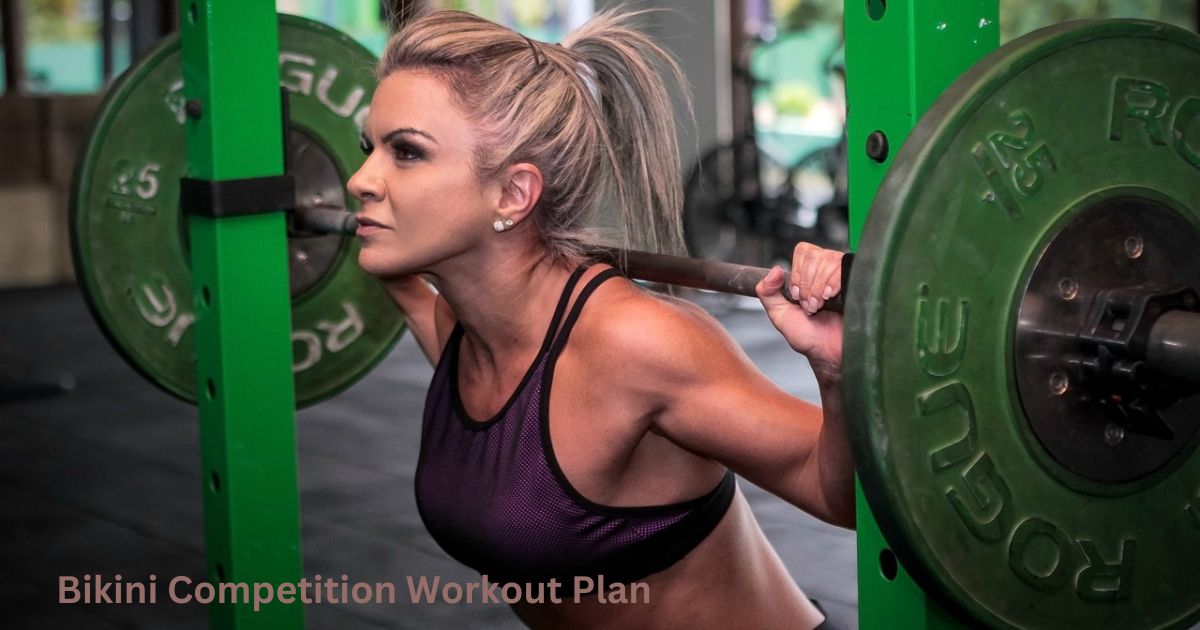Is it true or not that you are hoping to construct muscle and work on your bone wellbeing Assuming this is the case, you’ve come to the ideal location! In this article, we will investigate The Ultimate Guide to Muscle Gain and Bone Strength: 20 Expert Tips that can assist you with accomplishing your objectives. Whether you’re a wellness devotee or a fledgling, these systems will help you in acquiring bulk while major areas of strength for advancing sound bones. Along these lines, how about we make a plunge and find how you can improve your exercises and diet to upgrade muscle development and bone strength
Before we discuss The Ultimate Guide to Muscle Gain and Bone Strength: 20 Expert Tips. We should know the Importance of Muscle and Bone Health

Muscles are responsible for providing strength, stability, and versatility to our bodies. They support our posture, help in development, and empower us to perform different proactive tasks. On the other hand, bones provide a framework for our bodies, protect vital organs, and act as a reservoir for essential minerals. Maintaining optimal muscle mass and bone density is essential for preventing injuries, improving athletic performance, and promoting overall health.
It’s true and fantastic that muscles and bones offer the structure and framework that support mobility and physical activity.
They assist protein metabolism, immunological function, and energy levels, and lower the risk of numerous diseases, but they also serve far too many other purposes.
This explains why strong bones and muscles are essential for higher strength, immunity, lowered obesity risk, and all-around better quality of life.
Therefore, skeletal muscle, also known as the body’s largest endocrine organ, is a crucial component of optimal fitness. Let’s start to discuss what is The Ultimate Guide to Muscle Gain and Bone Strength: 20 Expert Tips
Now Here let’s Talk about The Ultimate Guide to Muscle Gain and Bone Strength: 20 Expert Tips

The Ultimate Guide to Muscle Gain and Bone Strength: 20 Expert Tips Given below:-
1. Identify Your Fitness Objectives
To build muscle and strengthen bone health, the first step is to establish specific training goals. Set measurable goals that are in line with your desires after defining what you want to accomplish. This will provide you with motivation and direction for the duration of your adventure.
2. Strength Training
To increase muscle mass and bone density, you must include resistance training in your exercise regimen. Exercise your muscles and promote bone growth by utilizing resistance bands, bodyweight workouts, or other challenging techniques.
3. Complex workouts
Include Complex exercises in your training routine for a variety of benefits that go beyond the obvious. Let’s examine a few of the main advantages:
- Efficiency: Time is valuable, and challenging workouts help you get the most out of it. You may obtain a thorough full-body workout in less time by focusing on several muscle groups in one exercise. For individuals with busy schedules who nevertheless want to maximize their training outcomes, this efficiency is especially helpful.
- Strength and Muscle Development: Complex workouts serve as a stimulus for increasing strength and building muscle. Major muscle groups like the legs, back, chest, and shoulders are worked during exercises like squats, deadlifts, lunges, and overhead presses. These exercises’ complex nature encourages the production of growth hormones, which causes muscle hypertrophy and increases in general strength.
- Complex routines match real-life movement patterns: making them extremely functional. Functional fitness and movement patterns. Workouts that include pushing, pulling, crouching, and lifting improve your capacity to carry out commonplace tasks with ease. Complex exercises increase your body’s capacity for practical tasks like carrying groceries, participating in sports, or overcoming physical hurdles.
4. Well-Rounded Diet

A balanced diet is necessary for bone health and muscle growth. Include lean proteins in your diet, such as chicken, fish, and tofu, to assist in the growth and repair of your muscles. To strengthen your bones, eat calcium-rich foods including dairy products, leafy greens, and fortified cereals.
Micronutrients like calcium, phosphorus, magnesium, vitamin D, and vitamin K are necessary for healthy bones. These minerals support healthy bones by working in concert.
The harmony of hormones also has a big impact on bone health. A good source of antioxidants is also necessary to maintain strong bones.
As people get older, their bone health deteriorates, which causes inflammation, arthritis, and other related ailments that make doing regular duties more challenging.
Antioxidants support healthy bones by reducing pain and inflammation.
5. Getting Enough Calories
Getting enough calories is one of the most important points of The Ultimate Guide to Muscle Gain and Bone Strength: 20 Expert Tips, Consume enough calories to meet your body’s energy needs if you want to gain muscle mass. Calculate your calorie needs for the day and aim for a small surplus to support muscle growth while preserving your health.
Setting and Achieving Daily Calorie Goals
It’s critical to maintain a balance between your energy intake and expenditure if you want to stick to your daily calorie objectives. The following advice can help you make sure you’re consuming enough calories to meet your body’s requirements:
- Determine Your Basal Metabolic Rate (BMR): Your BMR is the number of calories your body needs at rest in order to carry out its essential activities. Online calculators that take into account your age, height, weight, and gender can help you determine your BMR.
- Take into account your level of physical activity: Exercise helps you burn more calories overall. If you have an active lifestyle or often work out, you will need to eat more calories to make up for the extra energy you burn.
- Prioritise Nutrient-Dense Foods: Focus on nutrient-dense foods rather than empty calories from processed and sugary foods. In order to ensure that you are getting enough calories while also meeting your nutritional needs, include a mix of fruits, vegetables, whole grains, lean proteins, and healthy fats in your diet.
- Pay heed to your body’s signs of hunger and fullness. Eat only when you are hungry, and only until you are full. Avoid extreme calorie restrictions or restrictive diets because they might have a detrimental effect on your metabolism and general health.
- Seek Professional Advice: Consulting a Registered Dietitian or Nutritionist Can Provide Personalised Guidance and Support If You’re Unsure About Your Calorie Needs or Struggling to Meet Your Goals.
6. Consumption of enough protein
The building blocks of muscles are proteins. Eat enough protein each day from foods like eggs, lean meats, beans, and dairy products. 1.2–1.7 grams of protein per kilogram of body weight is the target range for supporting muscle development
7. Hydration
Although it is frequently neglected, maintaining appropriate hydration is crucial for bone and muscle health. To improve nutrient absorption, muscle regeneration, and joint lubrication, drink enough water throughout the day.
8. Recuperation and Rest
For your muscles to grow and your bones to become strong, you must give your body enough time to rest and heal. To lessen muscle soreness and speed healing, get enough sleep, schedule rest days into your workout schedule, and think about foam rolling and stretching.
9. Progressive overstimulation
To promote muscular growth and bone adaptability, gradually up the difficulty and length of your workouts. Progressive overload entails gradually increasing the amount of resistance, the number of repetitions, or the amount of time between sets to continuously push your body.
10. Exercises with a Big Impact
Include high-impact workouts in your fitness regimen, such as sprinting, jumping rope, or playing basketball. These exercises encourage the growth of new bone tissue and assist to increase bone density.
11. Supplementing with Vitamin D
As it facilitates calcium absorption, vitamin D is essential for maintaining healthy bones. Consider vitamin D supplements if you live in a region with little access to sunlight because it might be difficult to get enough of it through sunlight alone.
12. Calcium and vitamin K2
Calcium and vitamin K2 is also essential for keeping strong bones, in addition to vitamin D. The required building blocks are provided by calcium-rich meals and supplements, while vitamin K2 ensures that calcium is effectively assimilated and deposited in the bones.
13. Steer clear of excessive alcohol use
The health of your bones may suffer from excessive alcohol use. To stop bone loss and keep your bone density at its best, somewhat restrict your alcohol use or completely avoid it.
14. Give up smoking
Smoking is linked to a number of health problems, including weak bones. Not only can giving up smoking improve your health overall, but it also helps maintain bone density and lowers your chance of fractures. Quitting smoking is a difficult but incredibly rewarding process. You can conquer the addiction and regain your health by being aware of the risks associated with smoking, developing a support network, putting coping mechanisms into practise, and using nicotine replacement therapy. To stop smoking, keep in mind that it takes willpower, persistence, and support. Maintain your focus on your objective, acknowledge your accomplishments, and plan for a better, smoke-free future.
Read Our Popular Post: Unlock the Power: 4 Easy Back Exercises Using Gym Equipment
15. Keep a good posture.
For the sake of your bones and general musculoskeletal health, it’s imperative that you maintain appropriate posture. To reduce unneeded stress on your bones and muscles, maintain good posture while sitting, standing, and lifting items.
16. Eat a magnesium-rich diet.
Magnesium is a mineral that is essential for maintaining healthy bones. To support bone growth and strength, include foods high in magnesium in your diet, such as nuts, seeds, whole grains, and leafy greens.
17. A Regular Exercise Programme
Beyond your regular exercise program, regular physical activity is good for your bones and muscles. Participate in exercises that will increase your overall strength, mobility, and bone density, such as walking, hiking, or cycling.
18. Stress Reduction
Your total health, including the strength of your bones and muscles, can be negatively impacted by chronic stress. Use stress-reduction strategies like meditation, deep breathing exercises, or hobbies to improve your wellbeing.
19. Regular health examinations
Regular medical exams are essential for keeping track of your bone health and spotting any emerging problems. To determine your bone density and get the right advice for preserving strong bones, speak with your healthcare physician.
20. Stay Patient and Consistent
It takes persistence and perseverance to strengthen bone health and build muscle. Maintain healthy habits, remain devoted to your exercise regimen, and recognize that progress takes time. Keep your long-term well-being as your ultimate aim while acknowledging modest accomplishments along the way.
For more watch the video https://youtu.be/61QNcRuQRdE
Conclusion
Maintaining total wellness requires building muscle and bolstering bone health. You can significantly advance your quest for a stronger and healthier body by paying attention to The Ultimate Guide to Muscle Gain and Bone Strength: 20 Expert Tips offered in this article. Keep in mind that it is a process that calls for commitment and tenacity. Enjoy the path to a more strong and resilient you by taking good care of your body, and placing a high priority on your health.
FAQs
1. How long does it take to build muscle and strengthen bones?
The time required to build muscle and strengthen bones varies from person to person. It depends on factors such as genetics, current fitness level, and consistency in following a proper exercise and nutrition regimen. Generally, noticeable changes can be observed within a few months of dedicated effort.
2. Can I build muscle and strengthen bones without going to the gym?
While the gym provides access to various equipment and resources, it is possible to build muscle and strengthen bones without going to the gym. Bodyweight exercises, resistance bands, and other alternatives can be just as effective in promoting muscle growth and bone health.
3. Are there any age limitations for acquiring muscle and fortifying bone health?
It’s never too late to start working on your muscle and bone health. While it may be easier to build muscle and strengthen bones at a younger age, individuals of all ages can benefit from regular exercise, proper nutrition, and healthy habits to improve their overall strength and bone density.
4. Can I achieve these goals with a vegetarian or vegan diet?
Yes, it is possible to achieve muscle growth and fortify bone health with a vegetarian or vegan diet. Ensure that you include a variety of plant-based protein sources, such as legumes, tofu, tempeh, and quinoa, to meet your protein needs. Additionally, consider fortified plant-based milk alternatives and calcium-rich greens for adequate calcium intake.
5. Is it necessary to consult a healthcare professional before starting a fitness routine?
While it is not always necessary, consulting a healthcare professional, especially if you have any pre-existing medical conditions, can provide valuable guidance and ensure that you approach your fitness journey safely and effectively. They can assess your specific needs and tailor recommendations accordingly.

1 thought on “The Ultimate Guide to Muscle Gain and Bone Strength: 20 Expert Tips”